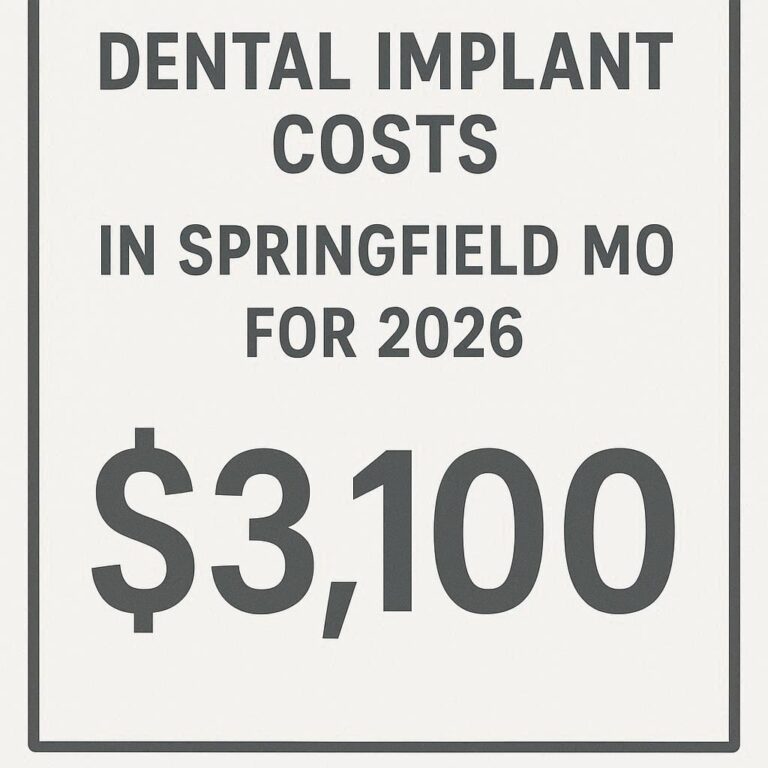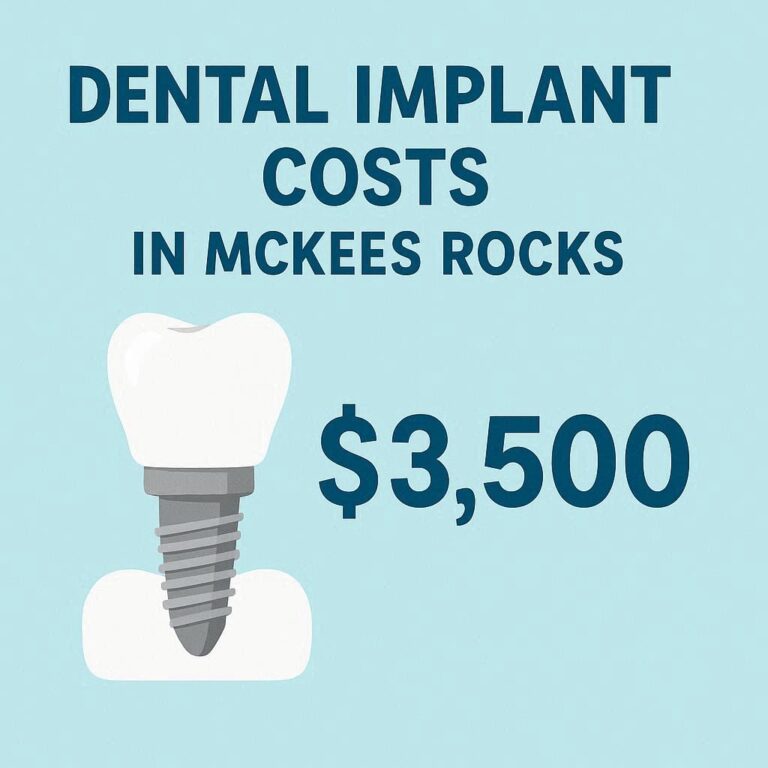Dental Implant Costs
Dental implants have revolutionized the field of dentistry, offering a permanent solution for missing teeth that looks, feels, and functions like natural teeth. However, one of the most common questions people have is: How much do dental implants cost?
The cost of dental implants can vary widely depending on several factors, including the type of implant, the complexity of the procedure, and the location of the dental practice. In this comprehensive guide, we’ll explore everything you need to know about dental implant costs, including the average cost of full dental implants, factors that influence pricing, and tips for making this investment more affordable.
Whether you’re considering dental implants for yourself or simply curious about the process, this article will provide you with all the information you need to make an informed decision.

2. What Are Dental Implants?
Dental implants are artificial tooth roots made of biocompatible materials like titanium. They are surgically placed into the jawbone to support replacement teeth, such as crowns, bridges, or dentures. Unlike traditional dentures, dental implants are fixed in place, providing a stable and long-lasting solution for missing teeth.
Types of Dental Implants
- Endosteal Implants: The most common type, placed directly into the jawbone.
- Subperiosteal Implants: Placed under the gum but above the jawbone, typically used for patients with insufficient bone height.
- All-on-4 Implants: A full-arch restoration using only four implants per arch.
3. Why Are Dental Implants So Popular?
Dental implants have gained immense popularity due to their numerous benefits:
- Natural Look and Feel: Implants mimic the appearance and function of natural teeth.
- Durability: With proper care, implants can last a lifetime.
- Bone Preservation: Implants prevent bone loss by stimulating the jawbone.
- Improved Oral Health: Unlike bridges, implants don’t require altering adjacent teeth.
4. Factors Influencing Dental Implant Costs
The cost of dental implants can vary significantly based on several factors:
1. Type of Implant
Different types of implants (e.g., single tooth, All-on-4, zygomatic) come with varying price tags.
2. Number of Implants
The more teeth you need to replace, the higher the cost.
3. Material Quality
High-quality materials like titanium or zirconia are more expensive but offer better durability.
4. Geographic Location
Dental implant costs vary by country and even by city. For example, implants in the U.S. are generally more expensive than in countries like Mexico or India.
5. Dentist’s Expertise
Experienced implantologists may charge more for their services.
6. Additional Procedures
Some patients require bone grafts, sinus lifts, or extractions, which add to the overall cost.
5. Full Dental Implant Cost Average
The average cost of a single dental implant in the U.S. ranges from 3,000to3,000to5,000. For a full mouth restoration, the cost can range from 20,000to20,000to50,000 or more, depending on the number of implants and the type of restoration.
Average Dental Implant Costs by Country
| Country | Single Implant Cost (USD) | Full Mouth Restoration (USD) |
|---|---|---|
| United States | 3,000−3,000−5,000 | 20,000−20,000−50,000 |
| Mexico | 1,000−1,000−2,500 | 7,000−7,000−15,000 |
| India | 800−800−2,000 | 5,000−5,000−12,000 |
| Thailand | 1,200−1,200−2,800 | 8,000−8,000−18,000 |
| Canada | 2,500−2,500−4,500 | 15,000−15,000−30,000 |
6. Breakdown of Dental Implant Costs
Let’s break down the costs involved in a typical dental implant procedure:
1. Initial Consultation
- Cost: 100−100−300
- Includes X-rays, scans, and a treatment plan.
2. Implant Placement Surgery
- Cost: 1,500−1,500−3,000 per implant
- Covers the surgical placement of the implant into the jawbone.
3. Abutment and Crown
- Cost: 500−500−2,000
- The abutment connects the implant to the crown, which is the visible part of the tooth.
4. Additional Procedures
- Bone Graft: 500−500−3,000
- Sinus Lift: 1,500−1,500−5,000
7. Comparing Dental Implant Costs Globally
Many patients choose to travel abroad for dental implants to save money. Countries like Mexico, India, and Thailand offer high-quality dental care at a fraction of the cost in the U.S. or Europe. However, it’s essential to research the credentials of the dental provider and consider travel expenses.
8. Insurance and Financing Options for Dental Implants
Dental Insurance
Most dental insurance plans cover a portion of the cost of implants, typically 50% or less. However, some plans exclude implants altogether.
Financing Options
- Payment Plans: Many dental offices offer monthly payment plans.
- Medical Credit Cards: Cards like CareCredit can be used for dental procedures.
- Health Savings Accounts (HSAs): HSAs can be used to pay for implants tax-free.
9. Are Dental Implants Worth the Investment?
While dental implants are expensive, they offer long-term benefits that outweigh the initial cost. They improve oral health, enhance appearance, and boost self-confidence. For many patients, the investment is well worth it.
10. How to Choose the Right Dental Implant Provider
When selecting a dental implant provider, consider the following:
- Experience and Credentials: Look for a dentist with specialized training in implantology.
- Patient Reviews: Read reviews and testimonials from previous patients.
- Technology: Choose a provider that uses advanced technology like 3D imaging.
11. Risks and Complications of Dental Implants
While dental implants have a high success rate (over 95%), there are potential risks, including:
- Infection
- Implant failure
- Nerve damage
- Sinus problems
12. Alternatives to Dental Implants
If dental implants are out of your budget, consider these alternatives:
- Dentures: Removable prosthetic teeth.
- Dental Bridges: Fixed prosthetic teeth anchored to adjacent teeth.
13. Conclusion
Dental implants are a life-changing solution for missing teeth, but they come with a significant cost. By understanding the factors that influence pricing and exploring financing options, you can make this investment more manageable. Whether you choose to get implants locally or abroad, prioritize quality and expertise to ensure the best possible outcome.
14. FAQs
1. How long do dental implants last?
With proper care, dental implants can last a lifetime.
2. Does insurance cover dental implants?
Some insurance plans cover a portion of the cost, but coverage varies.
3. Are dental implants painful?
The procedure is performed under anesthesia, so you shouldn’t feel pain during the surgery.
4. Can I get dental implants if I have bone loss?
Yes, but you may need a bone graft or sinus lift first.
5. How do I care for dental implants?
Brush and floss regularly, and visit your dentist for check-ups.
15. Additional Resources
- American Academy of Implant Dentistry
- International Congress of Oral Implantologists
- Dental Implant Cost Calculator


